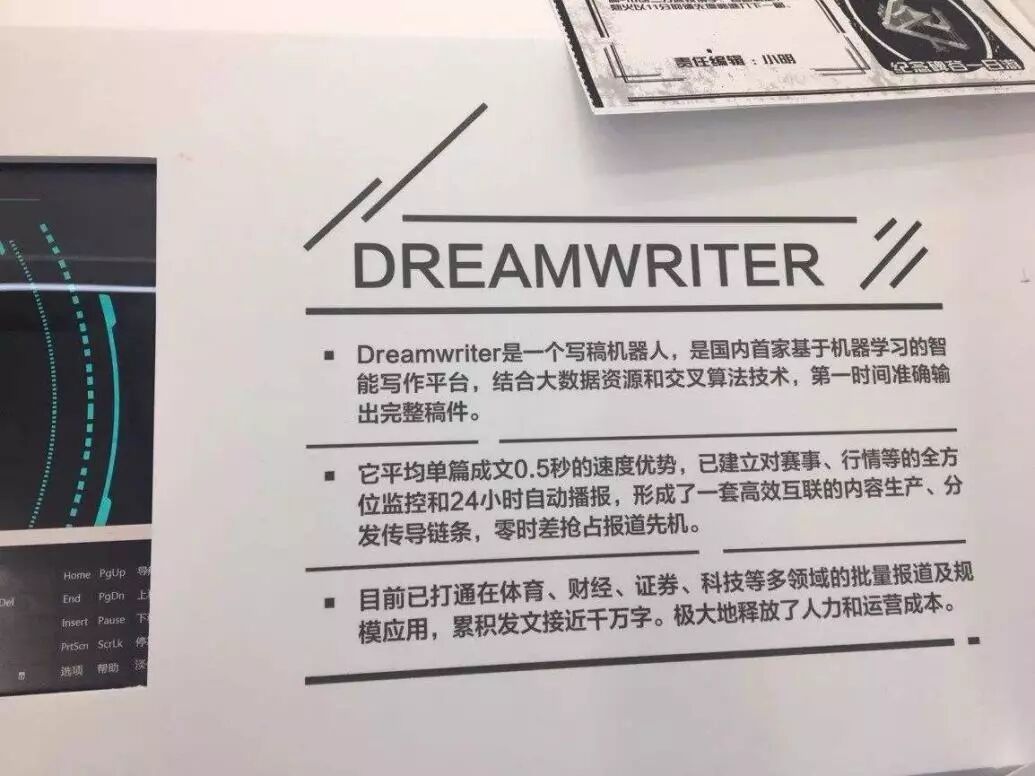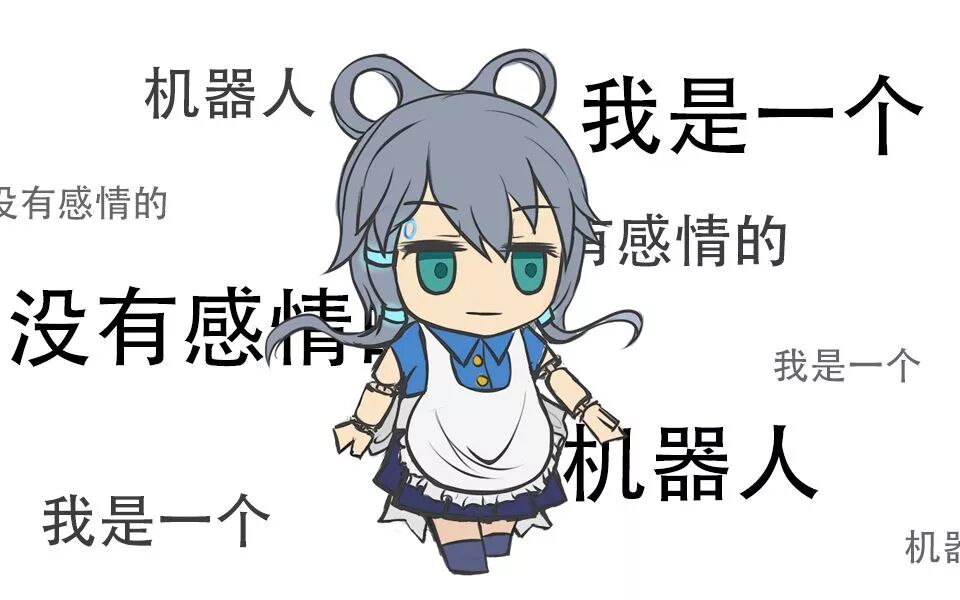
What exactly is artificial intelligence? There is currently no universally accepted standard definition. Recently, Tencent filed a lawsuit against “Wangdai Home” for unauthorized use, claiming that they plagiarized articles written by Tencent’s robot Dreamwriter. This case is the first in the field of AI writing and ended with Tencent winning the lawsuit.
This raises a question: Can the works produced by robots, which are not human, enjoy copyright?

(Tencent Dreamwriter)
First Case in AI Writing Concludes
According to sources, Dreamwriter is an intelligent writing assistance system developed by Tencent based on data and algorithms. In simple terms, it is an intelligent writing assistant that can produce approximately 300,000 pieces of work each year.
On August 20, 2018, Dreamwriter completed a financial news article titled “Afternoon Review: Shanghai Composite Index Slightly Rises 0.11% to 2671.93 Points, with Communication Operations and Oil Extraction Leading the Gains”. After extensively collecting and analyzing the textual structure of financial articles and the needs of different types of stock market readers, Dreamwriter completed the writing and publication within two minutes after the market closed, noting at the end of the article that “This article was automatically written by Tencent’s robot Dreamwriter.”
After this article was first published on Tencent’s securities website, Shanghai Yingxun Technology Co., Ltd. copied the article on the same day and disseminated it to the public on their “Wangdai Home” website. Tencent believed that Shanghai Yingxun Technology Co., Ltd. infringed upon its copyright and filed a lawsuit.
Whether articles written by artificial intelligence are protected under copyright law is clearly a fundamental question that cannot be avoided. The court held that analyzing the external form and generation process of this article, it originated from the personalized choices and arrangements of the creator, and the technical process of “generation” by Dreamwriter software meets the conditions for copyright protection of literary works under copyright law, thus qualifying as a literary work protected by China’s copyright law. The court ordered Yingxun Technology to compensate Tencent for economic losses and reasonable rights protection costs amounting to 1,500 RMB.
First AI Inventor Patent Application Rejected: Not Considered Human
Coincidentally, it was recently reported that the world’s first artificial intelligence “inventor” applied for a patent with the UK and European patent offices but was rejected. This incident has sparked heated discussions about the role that artificial intelligence or robots can play in technological innovation.
A nine-member team led by Professor Ryan Abbott from Surrey University submitted a patent application for a design created by an artificial intelligence system named “Dabus” to the US, UK, and European patent offices, which subsequently attracted global media attention. They later submitted more patent applications for AI inventors in countries such as Germany, Israel, and China.
The inventor of the design patent is the artificial intelligence system Dabus, and they hope that Dabus’s creations can be recognized by the patent office and granted formal patents.

(Images sourced from the internet)
Dabus, created by Dr. Stephen Thaler, an AI expert from Missouri, is a design system based on artificial intelligence technology. It has been trained with a vast amount of design-related information, including various designs, colors, expressions, and practical rules, gradually becoming an expert in AI design. It has completed two major design projects: the first is a beverage container that can change shape, making it easier for individuals with prosthetic limbs or robotic arms to grasp. The second design is a lamp named “Neural Flame” that can simulate human brain activity.
However, Dr. Thaler did not expect that patent agencies would currently hold a lukewarm attitude towards patents for inventions created by artificial intelligence. In a written response to the patent application, the UK Intellectual Property Office stated that it would not recognize the AI system Dabus as a qualified inventor because the machine “is not a person,” and therefore does not accept patent applications.

The UK Intellectual Property Office added: “Inventions created by artificial intelligence machines may become more common in the future, but the current patent system is not suitable for such inventions, and the patent department did not anticipate that such a situation would occur.”
The European Patent Office also rejected Dabus’s patent application, stating that it did not meet the requirements of the European Patent Office, which stipulates that the inventor specified in the patent application must be a human being, not a machine.
Disputes Over AI Applying for Intellectual Property Await Improvement
Regarding artificial intelligence, I would also like to mention our domestic robots.
One of the more well-known design AI systems is Alibaba’s “Luban,” which is said to be able to produce 8,000 posters per second. In the writing field, there are intelligent writing tools like Miaobi and Giiso, which can complete content aggregation in three seconds and update 500 articles daily. At this point, I feel a bit overwhelmed…

(Alibaba AI Luban gif)
In summary, artificial intelligence and machine learning have long been established fields of technology. Today, applications such as autonomous driving, facial recognition, and facial payment all belong to branches of artificial intelligence. Additionally, AI computers based on machine learning technology have already defeated humans in many competitions, including Go, highlighting the power of artificial intelligence technology.
However, artificial intelligence has also brought a series of technological, social, and ethical issues, such as the aforementioned machine patent applications, which await further legal refinement in the future.
[Warm Reminder] Some images in this article are sourced from the internet, and the copyright belongs to the original authors. If there are any issues, please contact us to modify or delete them. Thank you.